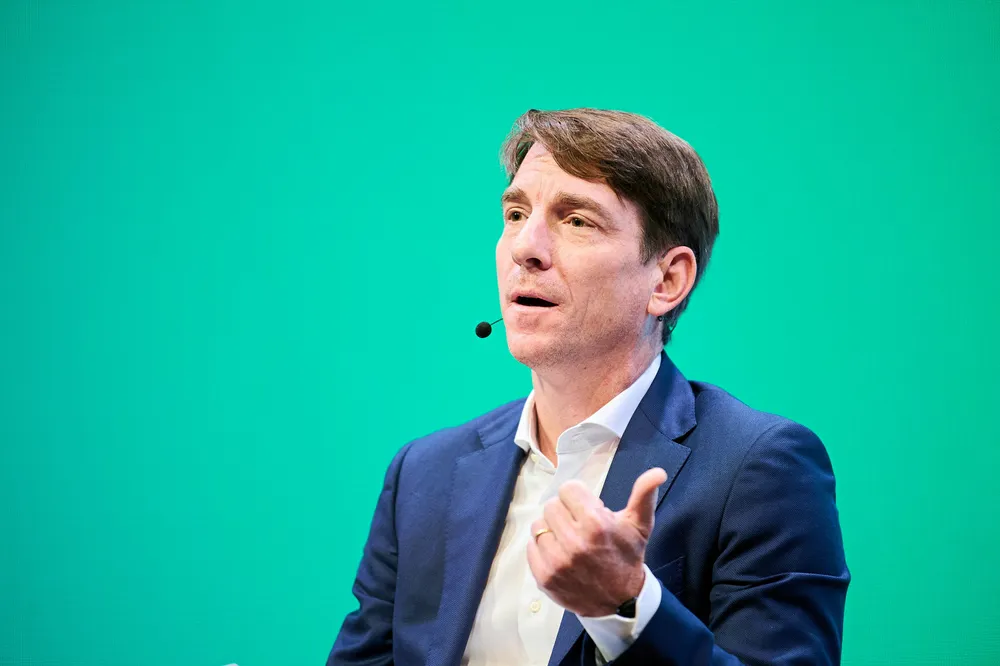Enel X exec says green power sector facing ‘new energy trilemma’ for corporates
Developers and their customers are wrestling with ‘time, location and impact’ of renewable energy assets, says head of account management at Enel X

Renewable energy developers and offtakers including tech giants are facing a “new energy trilemma” in how they build and manage green assets, says an Enel X executive.
The traditional energy trilemma was coined by the World Energy Council in 2010 to highlight the often competing needs for countries to have secure, cheap and clean energy.
Speaking at the opening of the RE-Source 2024 conference in Amsterdam today, Adrien Coudurier, head of global account management at Enel X, said that corporates may now face a new three-way headache: “Time, location and impact.”
Most of the delegates at the RE-Source conference – organised by WindEurope and SolarPower Europe to foster closer relations between green power generators and offtakers – would know that there are 8,760 hours in a year, said Coudurier.
Why? Because green power generators and buyers are “obsessed with time.”
During the event, he said that there will be talk of various kinds of Power Purchase Agreements (PPAs), each with a distinct approach to managing time.
This includes the new and much talked about 24/7 PPA, “a rare bird” much sought by tech giants like Google and Microsoft, who want to match their clean power consumption with supply on an hourly basis.
“Because to reach full decarbonisation, you must balance generation and demand,” said Coudurier. “And this means flexibility on the generation side, but also on the consumption side.”
Enel X, the advanced energy services division of Italy's Enel Group, offers buyers the opportunity to “harness time,” he said.
An example is work it has done with data centres in Ireland on ‘grid-interactive UPSs’ – mechanisms that tap batteries owned by data centres to supply the grid when needed, the reward being cheaper energy bills.
Call it flexibility, demand response or load management, he said, but “forward-thinking energy managers are putting time management at the top of their agenda.”
“But harnessing time is not enough,” he said, location is also critical.
Last year, Enel added 8GW of distributed energy generation, he said. Generating energy where it is consumed is known as distributed generation, he said. “But what about consuming energy where it is generated? We call that co-location.”
“When I was a kid in the French Alps, I used to wonder why there were these aluminium plants in remote valleys in the middle of nowhere.”
The companies had decided to add this “massive energy-intensive demand” in the remote valleys to “alleviate grids” and fast-track their power connection, he said. “Co-location is key time location and impact.”
“The last piece of the puzzle is impact,” he said. “How do we ensure we deploy enough renewables fast enough?”
Europe is likely to fall short of its 2030 renewables target according to the International Energy Agency, said Coudurier. Twenty per cent of that market capacity is market-driven, he said. “That's our impact as resource.”
“But how can you truly assess the impact of a single deal? For time, we have minutes, hours, and for location, we have coordinates, kilometres or miles.”
“A common proxy that we use is additionality,” he said. “But how do you really measure additionality?”
This remains hard to concretely assess, he said, but impact is nevertheless crucial to ensure the sustainability of the renewables market.
(Copyright)